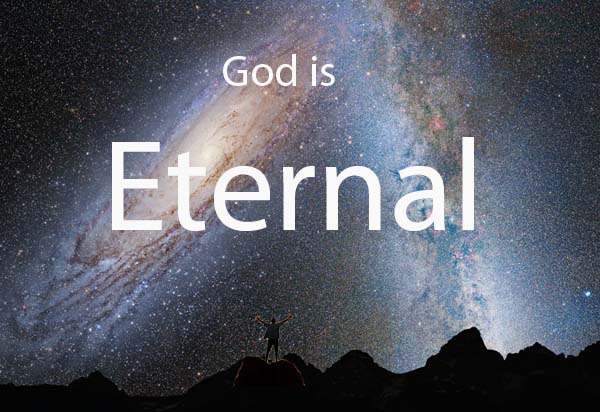Q17 - You say
everything needs a creator, so who created
God?
|
|
The question "Who created God?", is at the heart of the matter for Question 17: "You say everything needs a creator, so who created God?" and it shows a severe misunderstanding of both the nature of God, and the cosmological argument for the existence of God - specifically the Kalam cosmological argument[1]. Let's start with the Kalam, cosmological argument which makes it easy to see where the error crept in.
Apologist William Lane
Craig has used this argument as one of the
premiere arguments for the proof of the
existence of God, so it's in many of his
books. As he points out in "On Guard", it's
simple, easy to memorize, easy to share, and
logically "airtight." It goes like this:
Unstated but equally as important is the fact that the only cause sufficient enough to cause the universe is God. That observation leads to Leibniz's cosmological argument based on sufficient reason which I discuss here. But it's beyond the scope of what we need to discuss for this argument and question. Let's keep our focus on the Kalam Cosmological argument.
As Craig points out, if you accept the first two premises the conclusion in point 3 naturally and irrevocably follows. So the only "wiggle" room is with premises 1 and 2.
Premise 2 - that the universe began to exist - is accepted by even secularists since they believe in the Big Bang theory. The Big Bang theory claims the universe began about 13.7 billion years ago with a "singularity" - the big bang - (a term coined and used derisively by astronomer Fred Hoyle who was a skeptic of the theory). According to the theory, the initial "big bang" created space, time, matter and energy. The time frame is wrong (billions of years), as is the cause (in theory the singularity is causeless, but that's impossible and defies the laws of causality), but Craig likes the big bang theory because it supports the second premise of this argument. He likes it so much it has led him astray. But that topic, which is indeed worthy of examination (I wrote about his wandering here and here) but it takes us down another rabbit hole. For this article we will not concern ourselves with Craig's error, but rather we will keep our focus on the Kalam Cosmological argument.
So premise 2
is widely accepted. That leave's premise 1.
And here is were we see multiple problems.
Craig claims that some deny the obviousness
of premise 1 in order to escape the
inescapable conclusion once you accept it.[2]
But that's not the error here. The error
here is not understanding what the premise
is actually stating. The premise
does not state everything
needs a creator, it states that
what ever begins to exist has a cause or
creator. In this case, it's either that they
don't understand that, or they have an ignorance
of the nature of God.
Scripture makes this very clear. "Praise the Lord who is from
everlasting to everlasting"
"Before the
mountains were born or you brought forth the
earth and the world, from everlasting to
everlasting you are God."
I've
already given scriptures that state God
is eternal. Let's look at scriptures
that state some of God's other
qualities.
"I am the
LORD, the God of all mankind. Is
anything too hard for me?
Here's something to consider. Jesus said:
"But I
tell you that men will have to give
account on the day of judgment for every
careless word they have spoken.
Judgment is coming! For every foolish word you've said - and have not repented of. Do you really want to be judged on this foolishness because you were content to repeat something you've heard and were too lazy to think through the foolishness it proclaimed?
Here's a final word to the wise: God takes no pleasure in fools and mockers.
(Those who ask "who created God?" would be considered foolish mockers.)
Don't be foolish. Stop trying to look clever by asking this stupid question.
|
|
Notes Image
|
